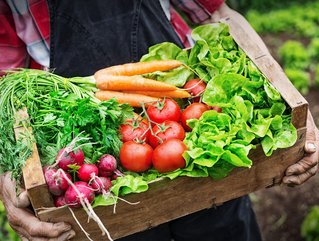AccorHotels boosts supply chain sustainability with 600 urban food gardens

French global hospitality company, AccorHotels, is on the way to its goal of installing urban fruit and vegetable gardens at 1,000 hotels by 2020.
The group, which operates 4,500 locations around the world, has committed to making its supply chain more sustainable and environmentally-friendly by reducing food waste and transport emissions.
The company celebrated a milestone on Thursday, announcing it had installed the gardens in 600 of its locations. The gardens will supply fresh produce for use in AccorHotels’ bars and restaurants. This means 400 are set to be installed over the next two years.
See also:
Apple, Unilever and Microsoft come top for green supply chains
AA, Chargemaster to install EV charging points across 4000 UK hotels
Read the latest issue of Energy Digital magazine!
The installation of these gardens ties in with overall company aims to boost food traceability, reduce food waste from its restaurants by 30% by 2020, and to reduce the environmental footprint of its produce supply chain. This forms part of the company’s Planet 21 sustainability strategy. In 2012, AccorHotels set targets for 2020 in the areas of eco-design, energy efficiency, water stewardship and sustainably sourced food.
The gardens will be pesticide free, and as well as providing ingredients the company has pointed to their potential to improve biodiversity and air quality, reduce urban runoff (surface runoff of rainwater from buildings in urban areas) and urban heat islands (urban areas significantly warmer than their rural counterparts), as well as providing insulation for those buildings they are installed on top of.
Thomas Dubaere, Chief Operating Officer for Norther Europe at AccorHotels, has stated: “As a group that produces a lot of food for our guests across the world, it is vital that we play our part in reducing food waste and investing in sustainable food systems.
“Our hotels are encouraged to source local produce, reducing the environmental impact from their food purchases and providing outlets for farmers to sell their produce.”






